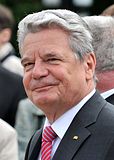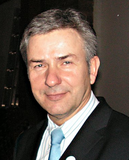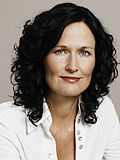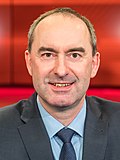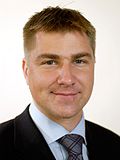2011 Weranian federal election: Difference between revisions
Britbong64 (talk | contribs) No edit summary |
Britbong64 (talk | contribs) No edit summary |
||
| Line 43: | Line 43: | ||
<!-- PMZ--> | <!-- PMZ--> | ||
| image3 = [[File: | | image3 = [[File:Reimann.png|160x160px]] | ||
| leader3 = [[Klaus Reimann]] | | leader3 = [[Klaus Reimann]] | ||
| leader_since3 = 6<sup>th</sup> September 2009 | | leader_since3 = 6<sup>th</sup> September 2009 | ||
| Line 85: | Line 85: | ||
<!-- DA--> | <!-- DA--> | ||
| image6 = [[File: | | image6 = [[File:Hart aber fair 2019-02-25-5560.jpg|160x160px]] | ||
| leader6 = [[Egon Geisel]] | | leader6 = [[Egon Geisel]] | ||
| leader_since6 = | | leader_since6 = 13<sup>th</sup> April 2010 | ||
| party6 = [[Democratic Alternative (Werania)|DA]] | | party6 = [[Democratic Alternative (Werania)|DA]] | ||
| color6 = 116468 | | color6 = 116468 | ||
Revision as of 11:31, 7 February 2021
| |||||||||||||||||||||||||||||||||||||||||||||||||||||||||||||||||||||||||||||||||||||||||||||||||||||||||||||||||||||||||||||||||
All 545 seats to the Volkstag 273 seats are needed for a majority in the Volkstag | |||||||||||||||||||||||||||||||||||||||||||||||||||||||||||||||||||||||||||||||||||||||||||||||||||||||||||||||||||||||||||||||||
|---|---|---|---|---|---|---|---|---|---|---|---|---|---|---|---|---|---|---|---|---|---|---|---|---|---|---|---|---|---|---|---|---|---|---|---|---|---|---|---|---|---|---|---|---|---|---|---|---|---|---|---|---|---|---|---|---|---|---|---|---|---|---|---|---|---|---|---|---|---|---|---|---|---|---|---|---|---|---|---|---|---|---|---|---|---|---|---|---|---|---|---|---|---|---|---|---|---|---|---|---|---|---|---|---|---|---|---|---|---|---|---|---|---|---|---|---|---|---|---|---|---|---|---|---|---|---|---|---|---|
| Turnout | 34,654,997 (74.73%) | ||||||||||||||||||||||||||||||||||||||||||||||||||||||||||||||||||||||||||||||||||||||||||||||||||||||||||||||||||||||||||||||||
| |||||||||||||||||||||||||||||||||||||||||||||||||||||||||||||||||||||||||||||||||||||||||||||||||||||||||||||||||||||||||||||||||
File:2011 werania election map.png States coloured by largest party. | |||||||||||||||||||||||||||||||||||||||||||||||||||||||||||||||||||||||||||||||||||||||||||||||||||||||||||||||||||||||||||||||||
| |||||||||||||||||||||||||||||||||||||||||||||||||||||||||||||||||||||||||||||||||||||||||||||||||||||||||||||||||||||||||||||||||
The 43rd federal election was held in the Weranian Confederation for the Volkstag (the lower house of the Bundestag) on the 27th May 2011. All 545 members of the Volkstag were elected under a single non-transferable vote system in multi-member electoral districts. The Social Democratic Radical Party of Werania (SRPO) won the largest amount of seats amid a collapse of the vote of the National Consolidation Party led government, with the SRPO subsequently forming a coalition government with the Modern Centre Party which underwent its own resurgence in votes to become the third largest party.
The election was held during an ongoing financial crisis, high unemployment, a large public deficit and high levels public discontent. The outgoing coalition government of the NKP, Conservative Reform Party (KRP) and Sotirian Democratic Homeland (SDT) had become extremely unpopular due to their adoption of tough public spending cuts as well passing a highly controversial and contested labour reform that many blamed for the high unemployment. As a result for the years preceding the election the SRPO had consistently outpolled the NKP as the largest party leading to many to predict the former would easily beat the latter at an election.
The electoral campaign was largely dominated by differing approaches to the financial crisis and unemployment. The government largely defended its policies of fiscal restraint whilst the PMZ called for greater tax cuts and economic deregulation to kickstart the economy. In comparison to the 2007 campaign where the SRPO had adopted a more moderate message the SRPO embraced a more populist tone. The SRPO mainly focused on cutting Werania's high unemployment rate, which stood at 11% on election day.
The election saw the SRPO and PMZ gain votes at expense of the NKP and the Weranic Section of the Workers' International who had performed well in 2007 but declined as many of their voters went to the SRPO. The KRP collapsed as a political force never regaining its relevance. The Weranic Völkisch Freedom Party, a far-right party that had shocked the nation when it gained over 5% of the vote in 2007 lost half its seats.
Turnout in the election was 74.73%, a decline of over 6% from the last election and the lowest turnout since the 1972 election. The SRPO's 10 million votes are the highest the party has ever achieved and the overall highest for a left-wing party in Weranian history.

